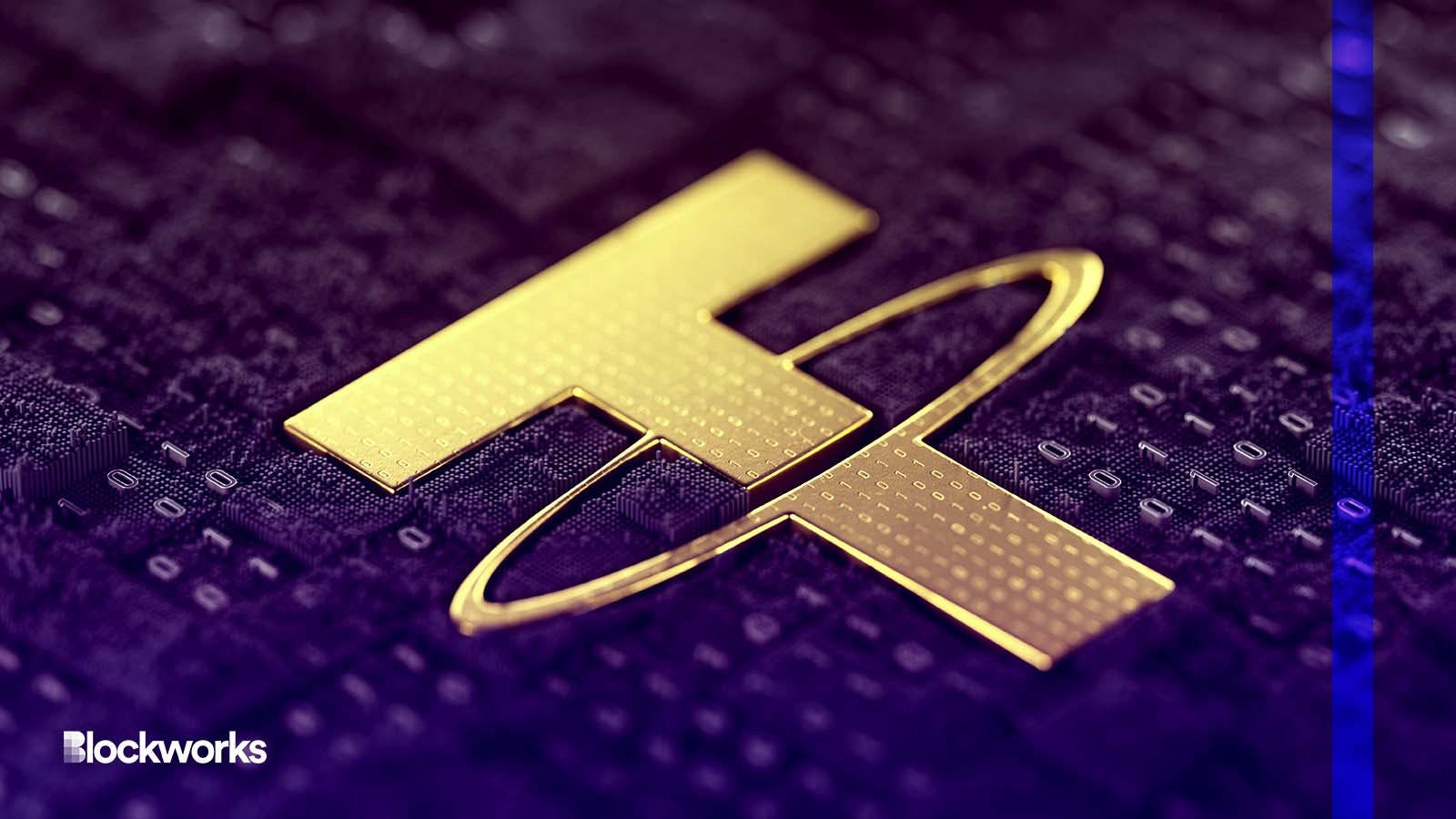Tracking a Novel Scheme to Launder Tether on Tron Blockchain
Blockchain intelligence firm Global Ledger said the fraudsters used Tron staking to launder the stolen funds

STEVLTH/Shutterstock.com modified by Blockworks
Around $775,000 of stablecoin USDT was allegedly stolen in a phishing scheme on the Tron network, according to an investigation by risk assessment firm Global Ledger.
Global Ledger claims the funds were laundered via the TRX staking mechanism. Staking on Tron involves delegating TRX tokens to one of 27 Super Representatives, the network’s version of a validator node.
Global Ledger said the fraudsters used the SunSwap exchange to get USDT for Tron in a certain wallet. They then used TRX for staking to verify their transactions and cover transaction fees, Global Ledger said.
The staking volume enabled the thieves to elect a specific Tron validator called “metaverse home,” a representative from Global Ledger told Blockworks. “Together with the wallet that collects the profit, approximately 100 phishing wallets participate in voting to help ‘metaverse home’ be chosen as a validator.”
With “metaverse home” selected, the validator receives the opportunity to create transaction blocks and receive a reward of 16 TRX for each block, the representative added.
“Proceeds were not cashed out through exchanges, in which case they can be traced and seized by law enforcement,” a representative from Global Ledger told Blockworks. “They were used to vote for the validator, [to] earn the cleanest money possible, [freshly] mined coins.”
The use of USDT is incidental and “metaverse home” is not linked to Tether, Global Ledger said, but its status and ability to earn money validating the blocks is certainly based on funds received from phishing USDT.
The nature of the scam shows how automated voting for a super representative can in ways permit this type of scheme, Global Ledger said.
“This is the first time we see such a laundering scheme,” a representative from Global Ledger said, noting that the scheme’s scale and sophistication indicates a business-like venture.
“These guys may have Slack, Jira and daily stand-ups like any other startup,” they said.
Updated Feb. 27, 2023 at 2:56 pm ET: An earlier version of this story misstated the total amount of stolen USDT.
Get the news in your inbox. Explore Blockworks newsletters:
- The Breakdown: Decoding crypto and the markets. Daily.
- 0xResearch: Alpha in your inbox. Think like an analyst.






